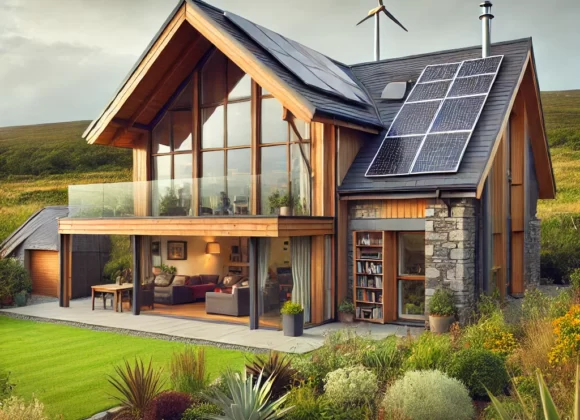Staying Energy Efficient Over Autumn
Autumn is a wonderful time of year. It brings with it beautiful cosiness, comfort food, and changing colours. Autumn also means that cooler weather is on its way – meaning energy usage is going to increase. This makes Autumn the perfect time to start thinking about how to remain energy-efficient.
A great first step to take to remain energy-efficient is to have a domestic EPC (Energy Performance Certificate) analysis carried out. The energy assessors carrying out the domestic EPC will test various aspects of your home, such as your ventilation, windows, loft insulation, heating systems, lighting, and more.
From this analysis, your home will be given an energy rating between A and G (A being the most efficient). Our London EPC team can determine how energy-efficient your dwelling currently is and will also recommend ways in which to improve your rating and efficiency.
There are many simple ways that these improvements can be achieved, a few of which will be outlined below:
Manage Your Thermostat
As the weather changes, it is tempting to turn your thermostat up. This can use a lot of additional energy. Adding more layers of clothing and bedding could be a way to fight this temptation.
Installing a programmable thermostat is a way to manage your home’s temperature a lot more easily. The Department of Energy’s suggestion to turn your thermostat down by 7 – 10 degrees for 8 hours of the day could save you up to 10% on heating costs – which is a significant saving as heating costs account for a large portion of most homes’ energy bills.
Buy Energy Efficient Appliances
Modern appliances all come with an energy rating and this is something that is definitely worth considering when purchasing appliances for your home. Energy rating range from A to G (A being the best rating). These ratings can have a significant impact on your total energy usage. Therefore, an appliance with a good energy-rating will be worth the investment.
Draught-Proof Your House
Any cracks or gaps in windows, walls, or doors lets cold air into your home and lets the warm air out. This could lead to higher energy bills as your heating has to compensate for this heat loss.
Adding draught-proof strips around doors, loft-hatches, and windows will aid in keeping the cold air out. If you have any fireplaces that don’t get used, blocking the chimney will also block any cold air entering into your home. Sealing cracks in skirting boards and floorboards can also help prevent any cold draughts. It’s also beneficial to check the exterior of your home as often gaps can be found where two building materials meet.
Swap to LED Lightbulbs
The colder months also mean we have shorter days and experience more darkness. The lightbulbs you use in your home play a big part in your energy usage. Switching your lightbulbs to LED ones can massively lower how much energy is used to light up your home as LED bulbs use up to 75% less energy than incandescent or fluorescent bulbs. Even though LED bulbs use less energy, they shine just as brightly and last up to 50 times longer – making their higher price tag worth it in the long run.
Wash Clothes in Cold Water
With today’s modern appliances and cold-water detergents, cold water has become just as effective at washing clothes as hot water. Ninety percent of the energy used in washing clothes comes from heating the water. By eliminating this need to heat up the water a lot of energy can be saved.
If you still prefer a hot wash, by lowering your washing machine’s temperature by even just ten degrees you can save a lot of energy usage. Over time this simple change can have a massive impact on your energy bill.
Switch Off Appliances On Standby
These days most homes are filled with many modern appliances and gadgets, most of which require energy-usage. If these appliances and gadgets are left on standby mode they could be contributing to your energy usage. It is important to turn appliances and gadgets that are not in use off at the plug. This will prevent any unnecessary energy usage.
A helpful way to remember to do this is by using timer plugs. They allow optimal timing to be scheduled and so will ensure appliances and gadgets are switched off of standby when they are unlikely to be in use.
Hopefully, these simple tips will help you to stay as energy-efficient as possible this Autumn. Keeping energy usage low not only benefits your wallet but also the planet, so let’s all strive towards being as energy-efficiency as best we can!



